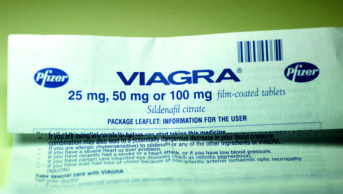
Shutterstock.com
Several prescription-only medicines (POMs) for common conditions could be reclassified as Pharmacy (P) or over-the-counter (OTC), following a call by the Department of Health and Social Care (DHSC).
In a blog published on 5 February 2025, the DHSC said it was encouraging manufacturers to apply to the Medicines and Healthcare products Regulatory Agency (MHRA) for reclassifications.
The list of conditions open for potential reclassification of medicines includes gastrointestinal, skin and women’s health, with heartburn, eczema and heavy periods among the specific conditions listed.
“Removing prescription-only restrictions on certain medicines can mean patients can access more of the medicines they need without having to visit their GP. It can also give pharmacists the tools they need to support patients in self-care for common conditions,” the DHSC said.
The blog added that opioids and antibiotics will not be considered and that there was also no guarantee that applications would be approved by the MHRA.
The list of conditions was developed following a consultation among stakeholders including pharmacists, as well as representatives from government, the NHS and the pharmaceutical industry.
A ‘reclassification alliance’, chaired by the MHRA and co-ordinated by the Propriety Association of Great Britain (PAGB) — which represents manufacturers of branded OTC medicines, medical devices and food supplements — met to consider how the reclassification work could “best serve patients”, the DHSC said.
“The list of conditions received additional scrutiny from chief pharmacists.”
In a statement published on 7 February 2025, the PAGB said the invitation was a “groundbreaking opportunity for OTC manufacturers to widen their portfolios and deliver new products to meet consumers’ needs”.
Michelle Riddalls, chief executive of the PAGB, said reclassifying medicines forms a “key pillar” in the PAGB’s work “to build a sustainable healthcare service”.
“It is also in line with the government’s ambitions to move to community and pharmacy-fronted healthcare, which empowers patients to treat their self-treatable conditions at home,” she said.
“Beyond the benefits to the individual, it is also estimated that if future reclassifications reduced NHS prescribing levels and spending by just 5%, it could save the NHS £1.4bn per year in prescription and appointment costs.
“There is more that can be done to help achieve this, but it is clear that this new announcement could have a very real and positive impact on creating a supportive self-care environment,” she added.
The Royal Pharmaceutical Society (RPS), a member of the conditions and category working group, which worked with the MHRA to identify medicines that could potentially be reclassified, welcomed the call.
Claire Anderson, president of the RPS, said: “Enabling POMs to P switches has a critical role to play in managing demand in primary care. It helps minimise unnecessary GP appointments and A&E attendances for minor conditions and ensures the public get the treatment they need from community pharmacies.
“As the professional leadership body for pharmacists, [the] RPS will work closely with the MHRA and manufacturers to provide guidance ensuring what is provided to the public continues to be safe and appropriate for their condition.”
In November 2024, the PAGB published ‘Supporting self-care: an ICS best practice compendium‘, which includes a series of case studies intended to showcase examples of best practice from integrated care systems that have developed initiatives to help local populations self-care for minor conditions.


